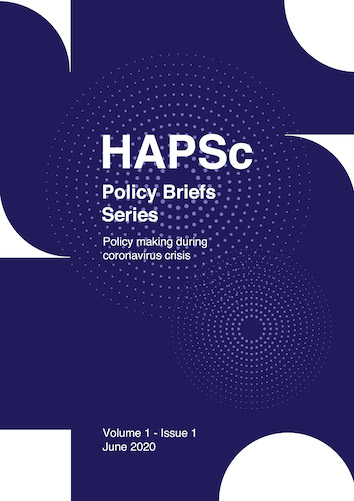Democracy at the Beginning of the New Era: Changes and Opportunities
Abstract
From the classical Athens of Pericles in antiquity, as this emerged in an impressive way in the 'Epitaph' of this prominent Athenian citizen, general and politician, until today, hu-manity has changed dramatically. All changes were focused on human and the forms of political organization that would ensure his survival. The implementation of the principles of democracy was a requirement of the times and a demand of the people. As far as the application and guarding of the principles of democracy is concerned, there have been pe-riods of their harmonization with social life, but also periods of their degradation, under-functioning, and even circumvention. The perspective of the whole world belongs to democracy and this requires the effort and mobilization of all, for the implementation of the fundamental democratic principles inherited from our ancestors and which we must pre-serve and pass on to next generations. This article analyzes the new challenges created by the coordinated and intense change of important sectors of our social everyday life, in democracy, demonstrating the attacks on its pillars and highlighting the opportunities that appear for its perfection.
Article Details
- Come citare
-
Zafeiris, K., Zafeiri, V., & Lioudaki, A. (2020). Democracy at the Beginning of the New Era: Changes and Opportunities. HAPSc Policy Briefs Series, 1(2), 10–17. https://doi.org/10.12681/hapscpbs.26472
- Sezione
- Articles

TQuesto lavoro è fornito con la licenza Creative Commons Attribuzione 4.0 Internazionale.
Authors retain copyright and grant the journal right of first publication with the work simultaneously licensed under a Creative Commons Attribution License that allows others to share the work with an acknowledgement of the work's authorship and initial publication in this journal.



